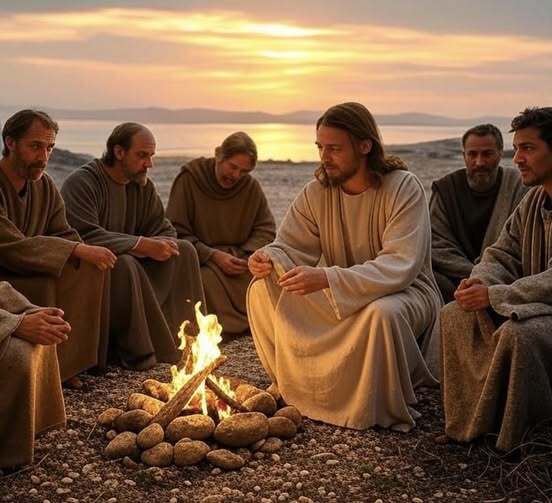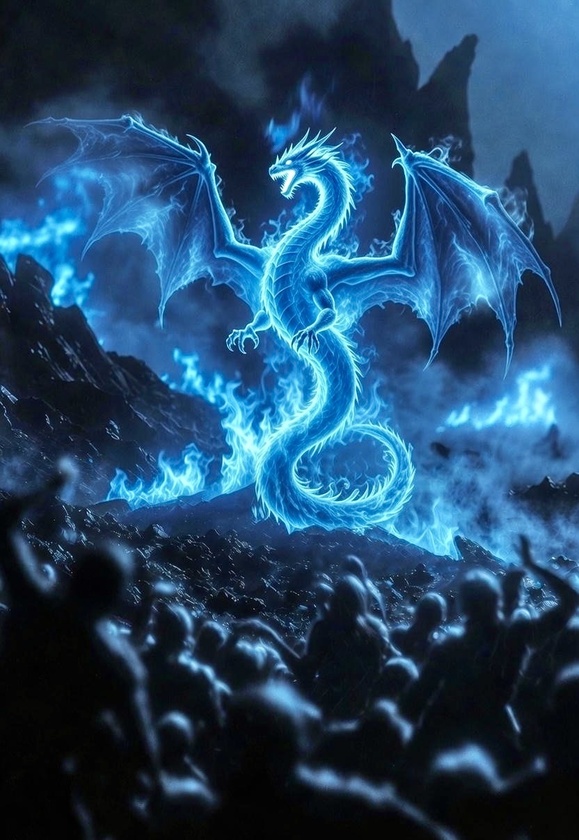The Dawn of Resurrection: The Empty Tomb and the Eternal Word
Luke 24:1-6
But on the first day of the week, at early dawn, they went to the tomb, the spices, they had prepared. And they found the stone rolled away from the tomb, but when they went in, they did not find the body of the Lord Jesus. While they were perplexed about this, behold, two men stood by them in dazzling apparel. And as they were frightened and bowed their faces to the ground, the men said to them, "Why do you seek the living among the dead? He is not here, but has risen..."
What is Gnosticism?
It's a collection of religious ideas and systems that emerged in the early Christian era, particularly in the first and second centuries AD. It emphasizes personal spiritual knowledge (gnosis) over orthodox teachings, often claiming that salvation comes through secret wisdom or insight into the divine. Gnostics typically viewed the material world as flawed or evil, created by a lesser deity (the Demiurge), and believed that the true God is a transcendent, unknowable spirit. They saw Jesus as part divine, part man and yet sort of a phantom. They believed that he wasn't really real because everything real is evil and God couldn't have created anything evil. They believed that everything in creation was created by this ignorant evil force which was apart from God. So therefore, Jesus couldn't have been a man but instead he was something akin to a phantom.
The Gnostic people followed this, secret spiritual insight, as the path to salvation. Gnostics believed this special knowledge revealed the divine spark within humans, enabling them to escape from the material world to the realm of the true, transcendent God. This "Demiurge" was sometimes associated with the God of the Old Testament, seen as inferior to the true spiritual God. Their view of Jesus was that he only appeared to have a physical body, as true divinity could not be tainted by the evil material world. For example, in the Gospel of Thomas (a Gnostic text), Jesus is portrayed as a revealer of hidden wisdom rather than a physical savior. His role was to impart gnosis rather than achieve salvation through a physical death and resurrection. Which is why I've begun my devotion today on this Gnostic journey as we wrap up our study of the gospel of Luke here in chapter twenty-four.
We're about to leave the gospel of Luke and begin our exploration into the gospel of John which was written for a different purpose than the other gospels. John wrote his gospel in order to correct the early false teachings that had begun to permeate the 1st century church.
Each gospel writer began their writing in different ways; Matthew in the genealogy of Jesus, Mark at Jesus' baptism, Luke at the annunciation to Zacharius, and finally John goes all the way back to even before the book of Genesis. He goes back to the beginning of the beginning of creation. And he places Jesus Christ (The Word) right there.
So, what's this all have to do with Luke 24:1-6?
The empty tomb and the angelic proclamation, "He is not here, but has risen," underscores a physical resurrection, a core orthodox belief that the Gnostics often reinterpreted as symbolic or spiritual. The Gnostic tendency to prioritize spiritual insight over a bodily reality might resonate for them in the mysterious transcendent tone of the angels’ question, "Why do you seek the living among the dead?" However, Luke’s emphasis on the empty tomb and the bodily resurrection directly challenges Gnostic Docetism. And this sets the stage for John’s Gospel.
You see, it's all very confusing for folks. The people are trying to sort out the transcendent in their material minds. "Mary Magdalene and Joanna and Mary the mother of James and the other women with them...", (Luke 24:10) were all trying to sort out what they had witnessed. Likewise, Peter in verse 12. As did Cleopas and his friend on the road to Emmaus (Luke 24:13-35). And finally, with all of them as they had broiled fish for breakfast with Jesus just before his ascension in verses 50-53. Everyone is trying to sort out these experiential thoughts of theirs and eventually they all tend to craft some sort of systematic theology out of that logos.
In Greek philosophy (e.g., Stoicism, Platonism), when speaking about the logos, everything preexists in thought before it takes form. In other words, everything began with a thought, an idea. But the Bible teaches us that before there was even a thought, there is The Word. The Bible teaches that for there to be a thought there must first be a thinker. You can't have logos without the One who is that Word.
John 1:1-3
"In the beginning was the Word, and the Word was with God, and the Word was God. He was in the beginning with God. All things were made through him, and without him was not anything made that was made."
And so here we are. We've arrived at the core of John's gospel.
How did they get so confused on this?
Why do people still get confused on these things?
From what I've observed, people get to thinking things that are not from the perspective of reality, but from imagination, superstition, and tradition. The very things that have plagued the people of God from the start. Every generation has failed to remain faithful to the Logos. Time after time, the people who follow God end up following one if not all of these idolatries (imagination, superstition, and tradition). We see it happening all throughout the Old Testament, and it continues even now.
The empty tomb and the absence of Jesus’ body clearly points to a bodily resurrection, not a spiritual or symbolic event. Luke’s detailed narrative included named witnesses to drive this reality home. Luke 24:10 grounds the event in historical testimony, reinforcing its tangible reality. This is all very important because the resurrection validates Jesus’ identity as the Son of God and his victory over death, fulfilling Old Testament promises and setting the stage for the disciples’ gospel mission.
Everything "Christian" hinges on this resurrection reality. The Gnostic's held the belief that Jesus only appeared to have a body, which obviously clashes with Luke’s portrayal of Jesus who was crucified, buried, and risen in bodily form. And this Gnostic tendency to prioritize the spiritual over the material mirrors the broader human struggle we see working throughout all human history and even today. Even among many "Christian" communities. This confusion is universal and generational.
Which is why John begins his teaching with a discussion about the Logos, not as an abstract principle but a personal, divine being, Jesus Christ, the eternal Son, king of the Universe. John pulls together everything we've learned up till now from the previous gospels and immediately distills it into this logos theology.
The Logos as Jesus provides the ultimate framework for understanding the resurrection. The women, Peter, and Cleopas struggled to process the empty tomb because it transcended human thought. John’s Logos reveals that Jesus himself is the source of all meaning, the one through whom God’s plan (including the resurrection) is fulfilled. Their experiences find coherence in Christ, the Word made flesh. John’s Logos doctrine refutes Gnostic dualism and Docetism. By declaring that the Word "became flesh" (John 1:14) and created all things (John 1:3), John rejects the Gnostic idea of an evil material world created by a lesser Demiurge. John insists that the Logos fully entered and redeemed the physical world, aligning with the resurrection in Luke 24:1-6. And the angels’ proclamation, "He is not here, but has risen," is not a spiritual metaphor but a historical reality for John and frankly should be for any rational thinking Christian as well.
So, what can we learn from this today?
This lesson today is a profound insight. The disciples’ journey in Luke 24, from perplexity to worship, shows that faith often begins in confusion but grows through encounter and revelation. Light shines in darkness...
John 1:4-5
"In him was life, and the life was the light of men. The light shines in the darkness, and the darkness has not overcome it."
...The women, Peter, and Cleopas didn’t immediately craft a "systematic theology"; their understanding evolved as they met the risen Jesus and reflected on his teachings. The Word itself and himself, revealed the truth to them. That experience gave them a rebirth of knowing. The light dawned on them through their witness.
And it's all boiled down to this one simply thought...
Jesus was...
"The true light, which gives light to everyone, was coming into the world. He was in the world, and the world was made through him, yet the world did not know him. He came to his own, and his own people did not receive him. But to all who did receive him, who believed in his name, he gave the right to become children of God, who were born, not of blood nor of the will of the flesh nor of the will of man, but of God." (John 1:9-13)
The resurrection reveals Jesus alone as the life-giver, whose victory over death illuminates the darkness of sin, despair, and confusion. The "darkness" in John 1:5 can represent sin, ignorance, or rejection of God’s truth. In Luke 24, the disciples’ initial confusion and the world’s failure to recognize Jesus’ identity reflect this darkness. John’s assertion that "the darkness has not overcome it" echoes the triumph of the resurrection in Luke 24. The empty tomb proves that death (the ultimate darkness) could not hold Jesus, the light. The light shines not to escape the world but to redeem it. John’s emphasis on Jesus’ incarnation and physical resurrection directly challenges Gnostic spiritualization, and human traditions that would try and box in that light, burying it again in their whitewashed tombs.
Spiritual confusion is not dispelled by secret gnosis, or traditional patterns of priestly orders, but by encountering the risen Jesus. Spiritual rebirth. You cannot find this light of revelation if it does not come directly from God (Jesus), through him and by Him. Jesus, the Logos, is the "true light" who illuminates all people who seek Him, not just an elite few with secret knowledge (as Gnostics claimed). Not through an elite priesthood or tradition. The resurrection is a universal revelation, open to all who witness and believe in faith, which is far more than a mere belief, for even the demons believe.
Believe this:
Jesus, the risen Word, is the light that shines in darkness, leading us to life in Him.
Go in peace and may God bless you and keep you now and forever.
Amen.




















